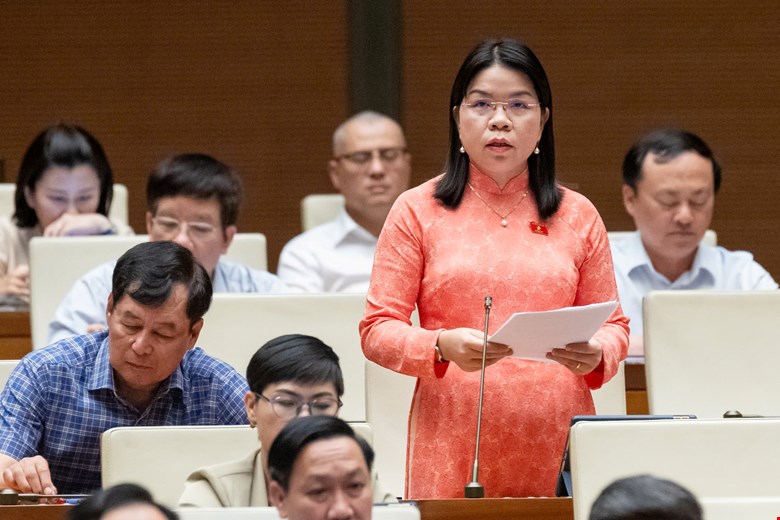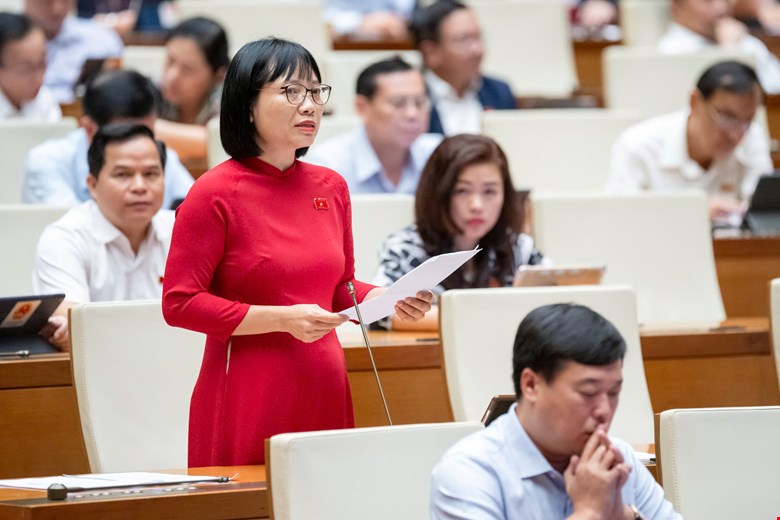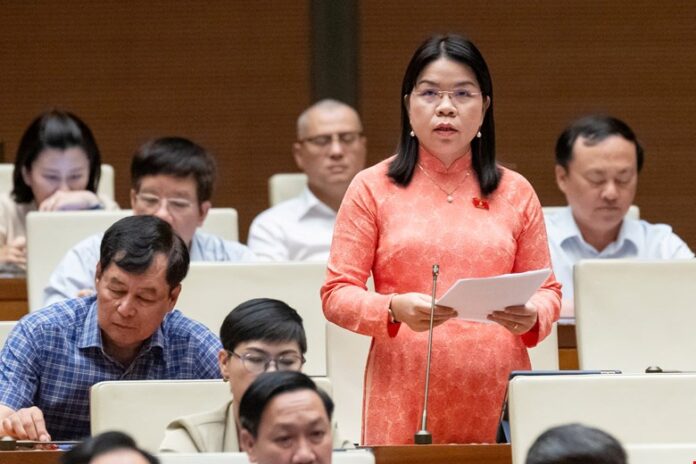Attracting Top Talent: Overcoming the Challenges of Salary Comparisons
During the National Assembly’s discussion on the draft Law on Officials and Civil Servants (amended) on May 14, several delegates provided valuable insights on special policies to attract top talent.
Delegate Trinh Minh Binh from Vinh Long Province pointed out the challenges in implementing the content “attracting and valuing talented people to work in agencies, organizations, and units within the scope of management compatible with budget capabilities and management authority of officials and civil servants according to the division of authority.”
He highlighted the difficulties in recruiting top talent due to limited financial resources. The current salary of VND 6.8 million/month for new officials and civil servants, including a 25% duty allowance, is insufficient to cover basic living expenses, especially for those with families or living in major cities.
“Such salary levels fail to attract talented individuals to work in government agencies, especially when compared to the private sector, multinational corporations, or startups, where income levels can be three to ten times higher,” Mr. Binh shared.
The delegate also drew attention to Resolution No. 275/2018/QH14 on salary reform, which aims to implement a position-based salary system. However, its implementation has been slow due to various reasons, particularly resource constraints and coordination challenges between different levels and sectors.
“If we don’t promptly apply the new salary system, we will struggle to create a healthy environment for transparent competition, directly affecting the efficiency of the civil service,” said the delegate from Vinh Long Province.
Assessing Talent Based on Performance and Output
Delegate Nguyen Thi Ngoc Xuan from Binh Duong Province suggested the need for more breakthrough mechanisms and long-term investments in high-quality human resources in the public sector. She proposed adding the concept of “talented people” to the explanatory section of the law and providing specific regulations, criteria, and standards for each industry and field.

Delegate Nguyen Thi Ngoc Xuan (Binh Duong Province)
Ms. Xuan recommended amending Clause 1, Article 5 of the draft law as follows: “The State has special policies in training, fostering, attracting, and valuing individuals with talents in the civil service and special policies for educational institutions specializing in national public service training.”
She emphasized that the criteria for evaluating talent should be based on performance, projects, and specific achievements rather than solely on academic qualifications. Additionally, she suggested studying and considering salary and incentive policies commensurate with the responsibilities and tasks assigned to officials and civil servants, especially leaders of parties, ministries, sectors, and localities, as well as senior experts and outstanding civil servants at the central and local levels, ensuring that they are not lower than those in the private sector.
Along with attracting talented individuals, the State needs to proactively invest in professional public service training institutions, especially academies and universities, to ensure that civil servants are trained to meet regional and international standards.
Creating Flexible Talent Selection Mechanisms
Delegate Nguyen Thi Viet Nga from Hai Duong Province also emphasized the importance of policies for attracting and rewarding talented individuals in the civil service, a matter of great interest to many delegates and voters.
She pointed out that talent in the civil service is a unique form of talent that requires not only professional competence and organizational skills but also integrity, a sense of responsibility, the ability to handle pressure, and political acumen.

Delegate Nguyen Thi Viet Nga (Hai Duong Province)
“Talent in the civil service cannot be identified through resumes, qualifications, or formal exams,” Ms. Nga said. “Instead, they should be discovered through practical tasks, their ability to handle new and complex issues, and their contribution to creating public value. To attract and retain talent, incentives should go beyond salary levels. It is crucial to provide them with opportunities to contribute, earn trust, and be valued.”
She proposed that the Government clarify key mechanisms related to talent identification and valuation in the public sector, including redesigning the official assessment system based on output and civil service effectiveness rather than solely on formality or process. Additionally, she suggested allowing the development of flexible talent selection mechanisms, especially for positions requiring creativity and innovation.
Ms. Nga also recommended granting authority to leaders in identifying, proposing, and utilizing talented individuals, coupled with objective monitoring and evaluation mechanisms. She emphasized the importance of providing in-depth training for civil servants, starting from the university level, to create a team of elite professionals.
“Improving the quality of the contingent of officials and civil servants cannot rely solely on general slogans,” she emphasized. “We need a civil service capable of selecting the right people, retaining the best, and removing the weak, regardless of their level in the system, especially in the context of organizational reforms in the political system as it is today. Amid the significant changes in the country, it is natural for officials and civil servants to have concerns. This is both a golden opportunity to choose truly capable people to stay in the system and a time when we need to pay more attention to the regimes and policies for officials and civil servants.”
A Rewarding Career at Vinpearl: Earning a Competitive Salary of VND 20 Million per Month
Vinpearl, a leading hospitality group, boasts an impressive average monthly income of 19.9 million VND per employee in 2024. With a substantial workforce of 14,770 individuals, the company has established itself as a prominent player in the industry.





















